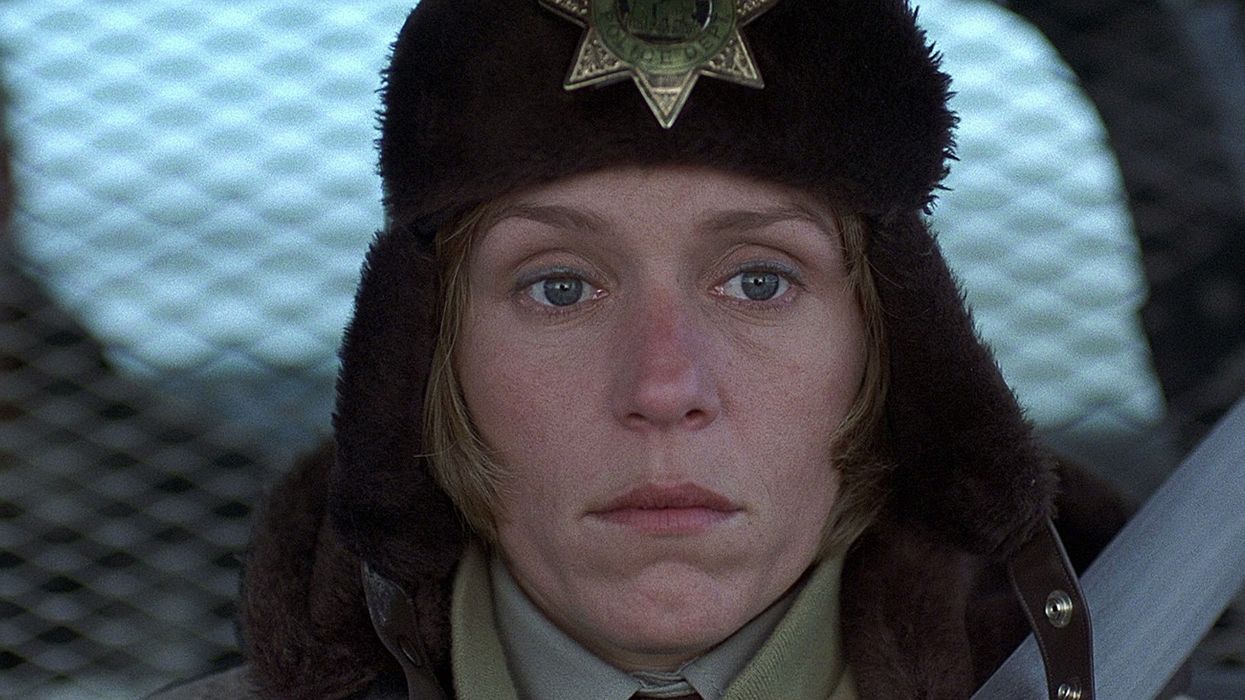Watch: How to Write a Tragicomedy Like the Coen Brothers
Joel and Ethan Coen have a knack for making us laugh, cry, and generally feel a lot better about our own lives.

Nobody writes tragicomedies quite like the Coen Brothers. Films like The Big Lebowski, Fargo, and Burn After Reading feature comedic characters that find themselves in tragic circumstances, whether it's a very pregnant police chief happening upon a grizzly murder or poorly executed espionage carried out by two inept gym employees. These types of scenarios make for great tragic comedy—or comedic tragedy—whichever you prefer, but what kinds of narrative elements of this entertaining genre do Joel and Ethan Coen use in their films? In this quick video essay, StudioBinder goes over three in particular that make their brand of screenwriting uniquely theirs. Check it out below:
Necessary violence
In a Coen Brothers script, violence, which there is plenty of, is not arbitrary but, generally speaking, serves a very important purpose. The characters usually find themselves in a situation in which the use of violence is unavoidable, or at the very least, necessary to complete a certain task. When the police officer pulls over Carl and Gaear, the two hitmen, in Fargo, Gaear sees no other option to ensure the success of their fake kidnapping other than shooting him point blank in the head and then chasing down the couple who witness the slaying as they pass by the scene in their car. The Coens brilliantly and economically use this gruesome act of violence to not only make sure that the audience understands the murderous capabilities of at least one of the kidnappers (Carl isn't much of a tough guy) but to also ensure that the story keeps going. From that point on, viewers know that 1.) everyone who comes into contact with them is in grave danger, 2.) the clock is ticking for poor Jean Lundegaard, 3.) none of this is going to end well, despite the film's comedic tone.

Characters are self-destructive
The Coens love them some unlikely heroes (if you can call them that). As StudioBinder puts it, "In a Coen Brothers film...the protagonist is often the most hapless, self-destructive character of the bunch. In essence, the protagonist is their own antagonist. We can easily see this in characters like Barton Fink, the Dude, and Everett from O Brother, Where Art Thou?, each of whom have a fatal flaw that not only continuously gets them into trouble throughout the length of the film but also keeps them from their ultimate goal. These individuals are not the classic underdogs or dignified luminaries of classic Hollywood cinema, but often the dregs of society, or even the everyday nobodies whose strange idiosyncrasies tend to go overlooked.
Ambiguous endings
If you like closure, you may not like Coen Brothers films. Joel and Ethan have a propensity for leaving ends loose ends and the achievement of goals dashed or at best, questionable. These ambiguous and cloudy endings are not used to piss off audiences, though, but instead to leave doors open for them to create their own interpretation of the story. The Coens use ambiguity as a storytelling device, something that flies in the face of what almost every screenwriting and storytelling guru advises writers not to do.
What are some other trademarks of the Coen Brothers' brand of tragicomedy? Let us know down below.
Source: StudioBinder











